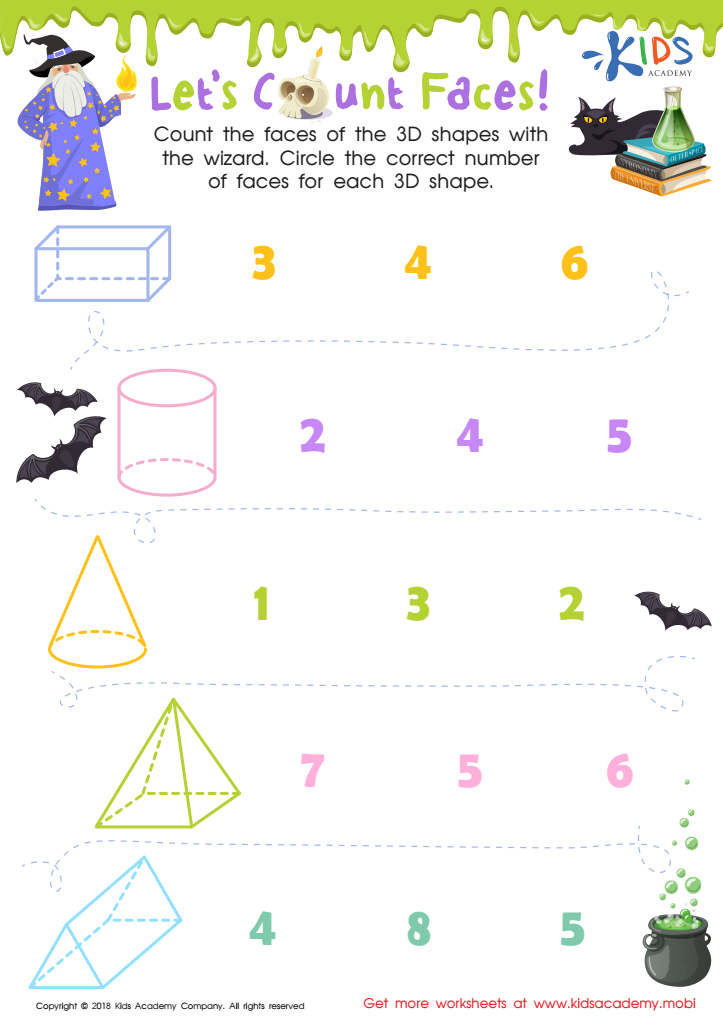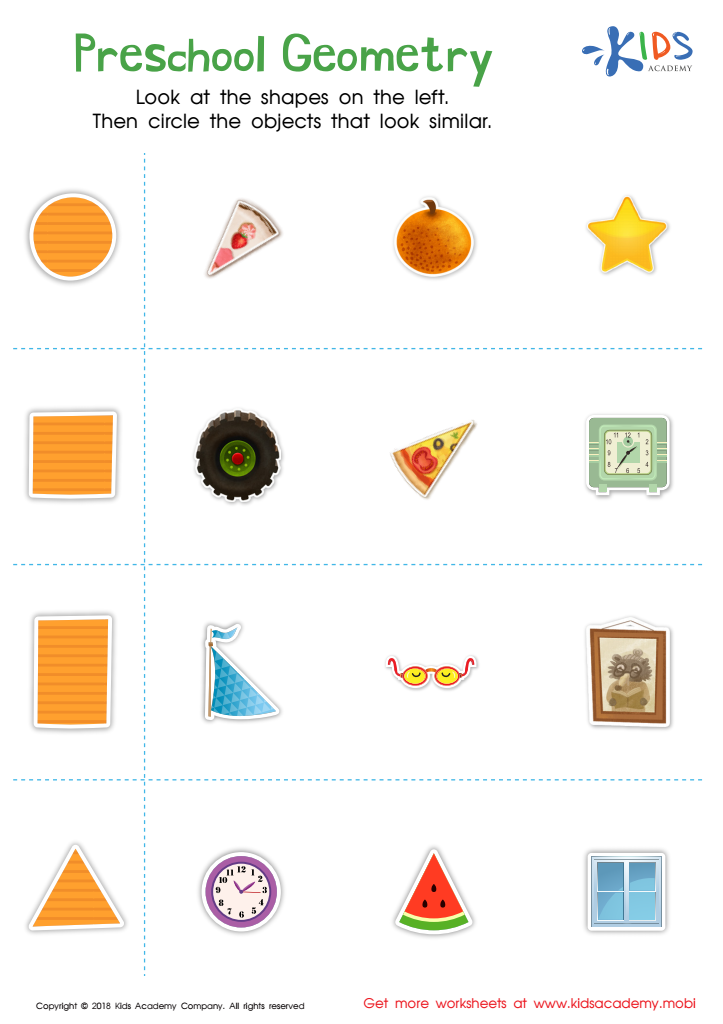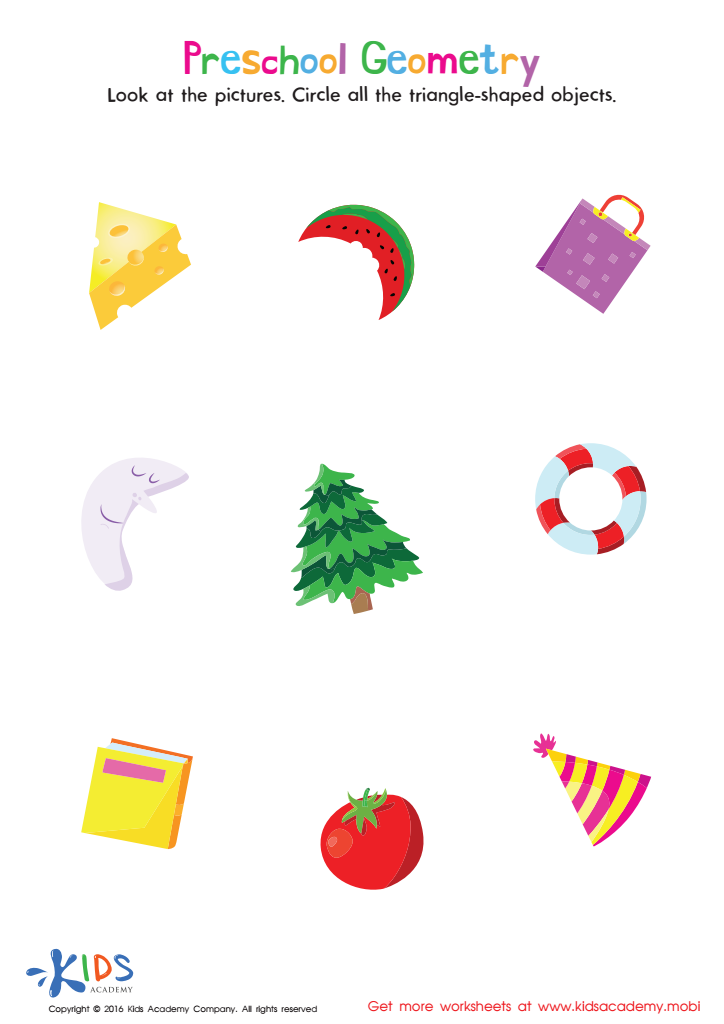Basic geometry understanding Normal Geometry Worksheets for Ages 4-9
3 filtered results
-
From - To
Unlock your child's potential with our Basic Geometry Understanding worksheets, designed specifically for ages 4-9! These engaging, interactive worksheets introduce young learners to essential geometric concepts, including shapes, sizes, and spatial relationships. Ideal for both classroom and home environments, our resources promote essential math skills in a fun and interactive way. With colorful illustrations and simple instructions, kids will enjoy exploring the world of geometry while developing critical thinking abilities. Our Normal Geometry Worksheets are perfect for reinforcing lessons, preparing for advanced topics, or just having fun with shapes! Get started today and watch your child's confidence in math soar!


Let's Count Faces! Worksheet


Preschool Geometry Worksheet
Understanding basic geometry lays the foundation for a child's mathematical journey. For children aged 4-9, this early grasp of geometric concepts, such as shapes, sizes, spaces, and how objects relate to one another, is crucial for several reasons.
Firstly, it enhances spatial awareness, enabling children to navigate their environment more confidently. Early exposure to shapes like circles, squares, and triangles helps foster pattern recognition and classification skills, vital for cognitive development. As they engage with these concepts, children learn to observe and make connections, which supports their problem-solving skills.
Moreover, geometry promotes creativity as children explore and manipulate shapes through activities like drawing, building, and crafting. This hands-on experience cultivates fine motor skills and encourages imaginative thinking. Integrating these experiences into play and daily life makes learning engaging and meaningful.
For teachers and parents, fostering a solid foundation in basic geometry can facilitate smoother transitions into more complex mathematical concepts later, building confidence and enhancing performance in subjects like measurement and spatial reasoning. Overall, promoting basic geometry understanding equips children with essential life skills, enriching their learning experiences both inside and outside the classroom.
 Assign to My Students
Assign to My Students






























